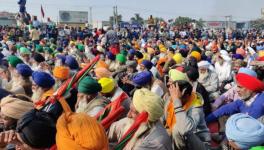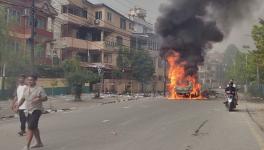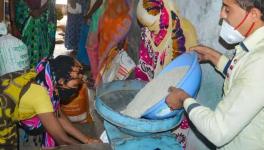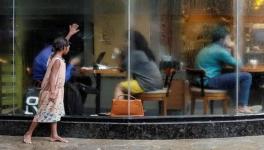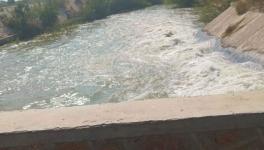Sri Lanka on Brink of Food Crisis After Economic Meltdown
Rising costs and a shortage of fuel have made life difficult for rice farmers
A food crisis in Sri Lanka looms as the island nation faces its worst economic disaster in decades.
With food price inflation higher than 90%, even staples like rice have become almost unaffordable for many Sri Lankans.
The World Food Programme (WFP) estimates that about 30% of the population is food insecure and that one out of four Sri Lankans now skip a meal regularly.
"The current food crisis is kind of a humanitarian problem," economist Manoj Thibbotuwawa at the Institute of Policy Studies of Sri Lanka told DW. "People are going for different resilience mechanisms, such as reducing the number of times they eat per day, cutting down the quantity of food and changing their food habits."
What has led to the crisis?
Two months ago, thousands of demonstrators stormed the presidential palace in Sri Lanka's capital Colombo after ousted former president Gotabaya Rajapaksa fled abroad following mass protests in July.
Protesters accused him and his government of economic mismanagement, which resulted in a foreign debt crisis and all-time high inflation.
Sri Lanka's unfolding food crisis is also tied to past policies.
After the end of the decades-long civil war in 2009, the country started massive infrastructure projects, such as Mattala Rajapaksa Airport, funded through high credits and loans from international partners.
As a consequence, Sri Lanka accumulated large sums of debt. China accounts for about 10% of Sri Lanka's foreign debt of more than $51 billion (€51 billion).
One of Sri Lanka's major sources of foreign income, tourism, also declined substantially after a terror attack in 2019 and as a result of the COVID-19 pandemic.
With almost no foreign currency reserves, the country was unable to import fuel — raising costs for food transportation and therefore food prices. Global inflation and the war in Ukraine has also increased prices for fuel, pesticides and fertilizers in Sri Lanka.
Chemical fertilizer ban throws agricultural industry into chaos
Agricultural economist Thibbotuwawa said the decision of former President Rajapaksa to ban chemical fertilizers in May 2021 also played a role in Sri Lanka's economic downturn.
Rajapksa said the ban was necessary because of the "adverse health effects and environmental impacts" of synthetic fertilizers — although another reason was also to cut down on import costs of fertilizers to save foreign reserves.
Changing to organic agriculture, however, takes years to be sustainably implemented as most farmers rely on chemical fertilizers, Thibbotuwawa said.
A system of soil testing must also be put in place so that farmers know which crops need fertilizer and how much to fertilize, be it organic or chemical.
After widespread protests, the fertilizer import ban was lifted half a year later. But during this time, the fertilzer shortage already hit domestic agriculture, especially rice production.
Rice farmers struggle to stay afloat
Rice production in the last season dropped by more than 30%. With a reduction in their yield, many farmers struggled to cover their costs.
A shortage of fuel also complicated the harvesting and transportion of crops.
The government introduced a quota system to prioritize giving fuel to farmers but farmers continued to struggle.
Farmers have seen a drop in yields, one reason for higher food prices
"Every day, we see that farmers are complaining that they are not getting adequate support from the government," said Joseph M. A., a rice trader. The company he works for buys rice from more than 3,000 paddy fields across the country.
The new government then authorized the importation of rice so cheap that it pushed down local prices.
Rice farmers who managed to cultivate their paddies, despite the lack of fertilizers and fuel shortage, ultimately faced struggles to sell their rice crop at reasonable prices.
Many farmers are shifting from mass rice production to small-scale cultivation for their own consumption, or are quitting farming altogether.
Calls for structural changes
President Ranil Wickremesinghe has agreed on a $2.9 billion bailout package with the International Monetary Fund to try and pull Sri Lanka out of its economic crisis.
The new government is also trying to save further on remaining foreign reserves. It has banned the import of more than 300 products which normally come from abroad, many of them food items. This has added to the spiralling food prices.
Short-term relief measures to fulfill immediate food needs are now necessary to avoid a worsening crisis, but structural changes are needed to transform Sri Lanka's agricultural sector in the long-run, said economist Thibbotuwawa.
Edited by: Sou-Jie van Brunnersum
Get the latest reports & analysis with people's perspective on Protests, movements & deep analytical videos, discussions of the current affairs in your Telegram app. Subscribe to NewsClick's Telegram channel & get Real-Time updates on stories, as they get published on our website.












